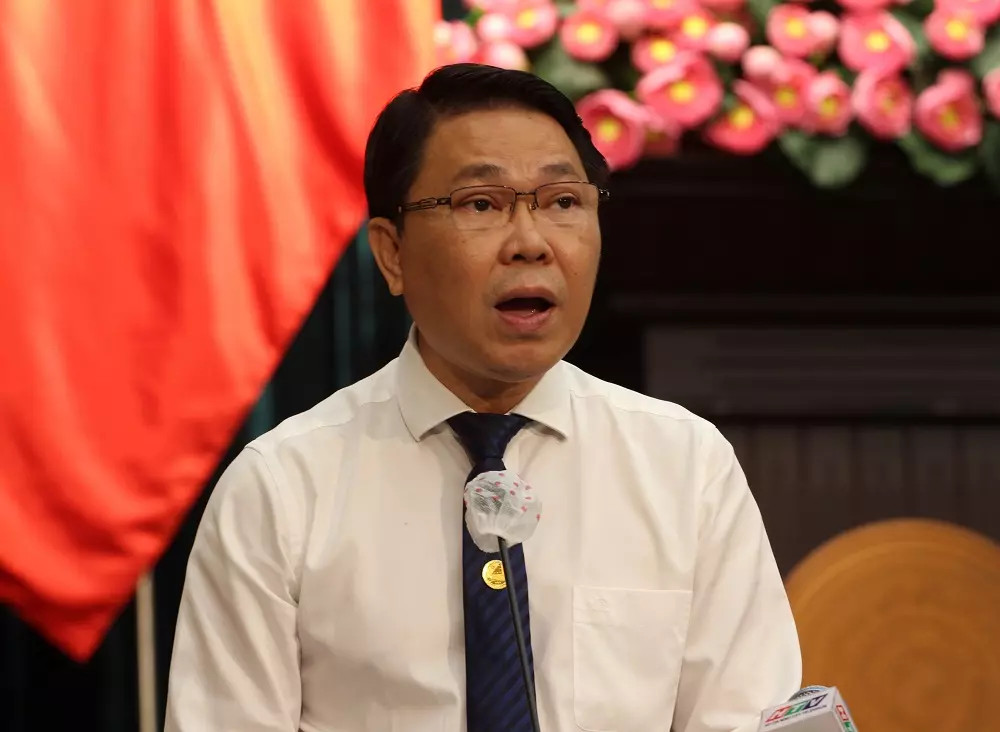
To Thi Bich Chau, Chair of the HCM City Fatherland Front, said that disputes between residents and apartment building management boards.
Quan admitted that disputes at apartment buildings are a burning issue, originating from conflicts in living conditions and apartment building operational costs.
It is estimated that disputes have occurred at 16 apartment buildings.
In order to solve the disputes, Quan said, the construction department in June released a plan on coordinating with districts, Thu Duc City and the HCM City Department of Natural Resources and the Environment to set up an inspection group in charge of checking the legality and agreements between the two parties so as to give advice to the People’s Committee to settle the disputes.
Regarding the HCM City housing development strategy in 2021-2025 and 2026-2030, the delegates focused on social housing projects.
Questions raised at the session included why procedures for developing social housing projects are often slower than commercial housing projects, what problems exist and which solutions has the construction department proposed.
Other delegates questioned why social housing, commercial housing and accommodations for workers still cannot satisfy the requirements.
Quan said 2016-2020 was the time when social housing developed well with 19 projects completed and put into operation, providing 1.23 million sq.m to the market, which was 3.5 times higher than five years before.
The supply of social housing, low-cost and affordable housing has increased, but still has not satisfied demand from low-income earners.
The reasons, according to Quan, are that the city still cannot attract many investors, and social housing projects bring low profits and take a lot of time to follow procedures.
The city is also lacking housing for lease. It is estimated that 130,000 people move to HCM City to settle and work each year. Most of the workers don’t have savings to buy houses, so the demand for lease is high.
Meanwhile, the supply of houses for lease is short, which leads to a supply-demand imbalance. As a result, many factory workers have to live in substandard rented rooms.
In order to develop the housing program, the construction department has checked legal procedures and suggested cutting some investment procedures, which would attract more investors and speed up implementation of social housing projects.
The department is also planning to give support to boarding house owners to upgrade and build standard houses to satisfy demand.
Prior to that, HCM City Mayor Phan Van Mai said that the city People’s Committee has decided to reduce some steps for procedures for social housing development. The procedures will be shortened from 500 days to 133 days, applied to investments on the land under the use of enterprises, and to 217 days in cases of bidding to select investors on clean land under the state’s management.
Mai said the simplification of procedures aims to help the implementation of projects to gain targets on housing development program set by the city.
According to the HCM City People’s Committee, the total land bank needed to develop housing in 2021-2030 is 5,239 hectares, including 4,788 hectares for commercial housing and 451 hectares for social housing.
The targeted average housing area in HCM City is 23.5 sq.m per head by 2025. It is expected that the total additional housing floor area in 2021-2025 is 50 sq m. The figures are 26.5 sq m per head and 57.5 million sq m by 2030.
Regarding the minimum goals, the city strives to have 10 sq.m per head by 2025 and 12 sq m by 2030.
Regarding social housing, another 15.5 million floor area would be developed in 2021-2025 and 21.4 million sq m in 2026-2030.
Regarding social housing, 2.5 million sq m of housing floor area, or 35,000 houses, would be developed in 2021-2025, including 500,000 sq m of housing for lease, equal to 7,000 apartments, and 220,000sq.m of housing floor area for factory workers, equal to 4,500 apartments.
In 2026-2030, HCM City expects to have 4.08 million sq m of floor area, or 58,000 houses, including 11,600 apartments for lease and 8,000 apartments for accommodations for workers.
Ho Van